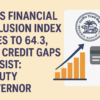In association with Rabo Foundation, auctusESG organized a conclave titled ‘Greening of Indian NBFCs’ in Mumbai on April 10, 2025. Highlights:
 Namita Vikas, Founder & MD, auctusESG, began with sharing that RBI Governor has announced several initiatives for promoting climate finance and green infrastructure. He recommended pooling of bankable projects for climate funding. She stressed that banks and NBFCs need to go beyond financial measures to non-financial measures like governance. She revealed that there is a diverse pool of capital that is linked to a non-financial perspectives.
Namita Vikas, Founder & MD, auctusESG, began with sharing that RBI Governor has announced several initiatives for promoting climate finance and green infrastructure. He recommended pooling of bankable projects for climate funding. She stressed that banks and NBFCs need to go beyond financial measures to non-financial measures like governance. She revealed that there is a diverse pool of capital that is linked to a non-financial perspectives.
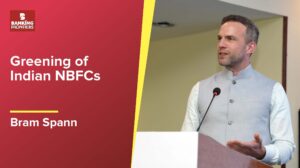 Starting his talk with a humorous observation about the habit of Indians to create abbreviations that perplexed him, Bram Spann, Regional Lead – Asia, Rabo Foundation, said that some organizations think ESG is cumbersome and complex. He pointed to 3 advantages: 1. Better risk management 2. Enhanced reputation 3. Attractiveness to investors, from domestic and western investors. He ended his talk with another bit of humor – he coined a new abbreviation suggesting that ESG represents Entrepreneurial Successful Guys.
Starting his talk with a humorous observation about the habit of Indians to create abbreviations that perplexed him, Bram Spann, Regional Lead – Asia, Rabo Foundation, said that some organizations think ESG is cumbersome and complex. He pointed to 3 advantages: 1. Better risk management 2. Enhanced reputation 3. Attractiveness to investors, from domestic and western investors. He ended his talk with another bit of humor – he coined a new abbreviation suggesting that ESG represents Entrepreneurial Successful Guys.
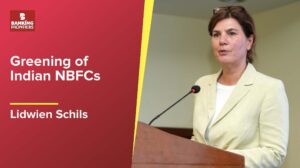 Highlighting that Rabo Bank was established by farmers, Lidwien Schils, MD, Rabo Foundation, spoke about the mission of the organization being to contribute to the economic and social development of vulnerable people. “We support farmer cooperatives and financial service providers. For us, financial inclusion and microfinance are very important. We work with local channels like NBFCs. While focusing on our mission, we try to minimize harm, both intentional and unintentional. Too much debt or loans are high interest rates are harmful. A red flag is to be mindful of doing no harm.”
Highlighting that Rabo Bank was established by farmers, Lidwien Schils, MD, Rabo Foundation, spoke about the mission of the organization being to contribute to the economic and social development of vulnerable people. “We support farmer cooperatives and financial service providers. For us, financial inclusion and microfinance are very important. We work with local channels like NBFCs. While focusing on our mission, we try to minimize harm, both intentional and unintentional. Too much debt or loans are high interest rates are harmful. A red flag is to be mindful of doing no harm.”
Sanjoy Ghosh, GM – Dept of Climate Action and Sustainability at NABARD, shared that NABARD has run the world’s largest microfinance program. 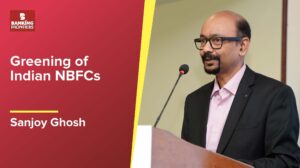 He detailed that NBFCs cover 20% of the overall institutional credit and 57% of the small loans. 400+ NBFCs whose size is Rs500 cr and above, have been defined by RBI as systematically important.
He detailed that NBFCs cover 20% of the overall institutional credit and 57% of the small loans. 400+ NBFCs whose size is Rs500 cr and above, have been defined by RBI as systematically important.
He also outlined the developments at NABARD in last few months: “We had a farm sector development department. With increase focus on agri, NABARD formed the department of climate sustainability. We have not only devised internal strategy, we have devised green taxonomy, with 7 sectors and 32 sub-sectors. We are also doing Net Zero strategies for organizations. One month ago, we launched a green lending product which is flexible in interest rate and tenor. The department of refinance is supporting NBFCs.”
 He added that NABARD is talking to ADB for concessional finance and to RBI to permit access to low-cost international funds. “We expect NBFCs to strengthen their climate risk and ESG policies. We will soon have some gamified models on our website for creating awareness. We have partnered with Rabo Foundation for onboarding small farmers for getting them green credit. We plan to launch a fund to support start-ups.”
He added that NABARD is talking to ADB for concessional finance and to RBI to permit access to low-cost international funds. “We expect NBFCs to strengthen their climate risk and ESG policies. We will soon have some gamified models on our website for creating awareness. We have partnered with Rabo Foundation for onboarding small farmers for getting them green credit. We plan to launch a fund to support start-ups.”
The conclave included a fireside chat between Namita Vikas and Anil Kumar SG, Founder and Group CEO at Samunnati. Anil explained that there are large pools of capital for ESG but their challenge is last mile reach. “We see climate not as a future challenge, but as something today and in our homes. Our biggest challenge was how to convince our credit and operations teams to understand ESG and to use it.’
He gave the example that while his company does not finance alcohol business, agri fermentation is a natural thing and thus an input to alcohol industry, and hence was taken up.
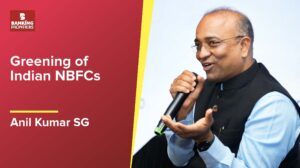 Anil dwelt on carbon and explained that there is excess carbon in the air and less carbon in the soil. “We learnt that increasing carbon in the soil reduces carbon in the air. Hence, we launched a carbon incubator in Sept 2024. Also, we found additives in animal feed that reduce animal methane emission by 40%. We never look at things from short term and cost, we look at long term and relevance.”
Anil dwelt on carbon and explained that there is excess carbon in the air and less carbon in the soil. “We learnt that increasing carbon in the soil reduces carbon in the air. Hence, we launched a carbon incubator in Sept 2024. Also, we found additives in animal feed that reduce animal methane emission by 40%. We never look at things from short term and cost, we look at long term and relevance.”
In another session moderate by Arindom Datta, Namita Vikas outlined 3 big challenges to ESG adoption: “1. Regulatory complexity and compliance cost. There is inconsistency between local and global reporting standards. Non-financial reporting is increasing the burden for small lenders as compared to big lenders that have the necessary teams and resources. 2. The market fragmentation is leading to higher costs. Green bonds in India have stagnated. Perceived risk for SME lending is higher. There are no alternate sources to banks. So, there is a need to tap multilateral development banks. 3. How to become investible and be away from green washing. Need to make climate and ESG work for the organization.”
Shobana Chawla, Head – Sustainable Finance Origination for South Asia at Standard Chartered Bank, shared that the bank is committed to Net Zero by 2025 and Net Zero in financed operations by 2050. “For all the financing we do, we do climate and ESG assessment. We have global frameworks which are 3rd party certified. As of last year, we have mobilized $ 121 billion and have a target of $300 bn by 2030.”
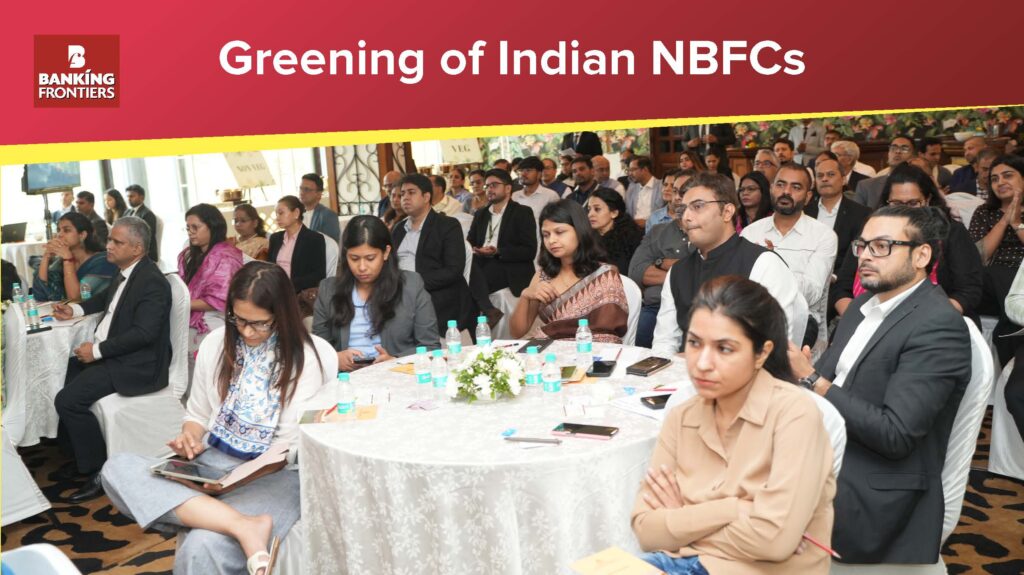
There were several others speakers at the conclave who shared valuable insights, which were highly appreciated and lauded by the NBFC audience.






